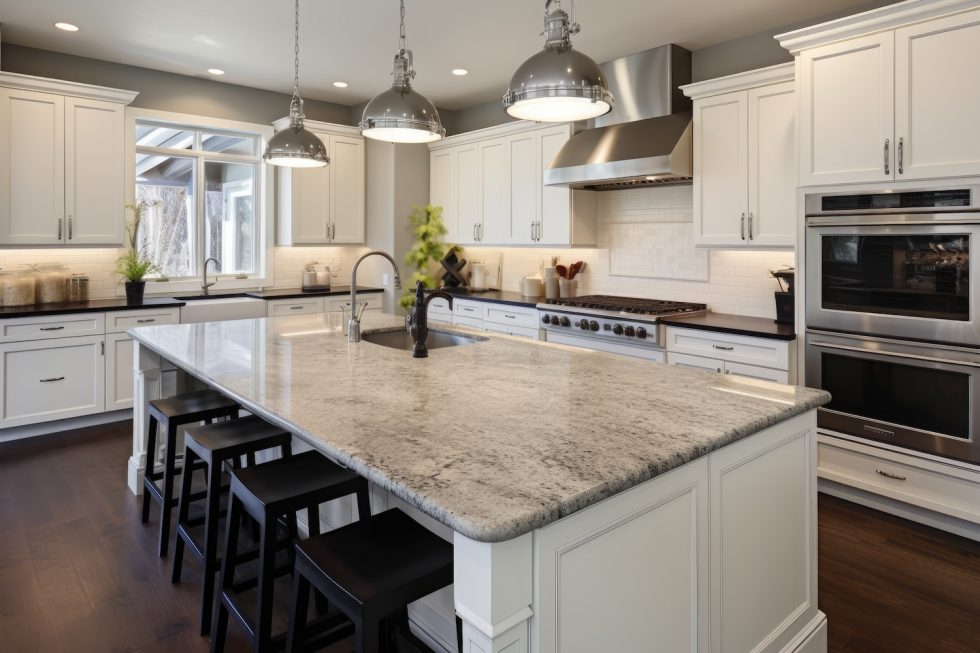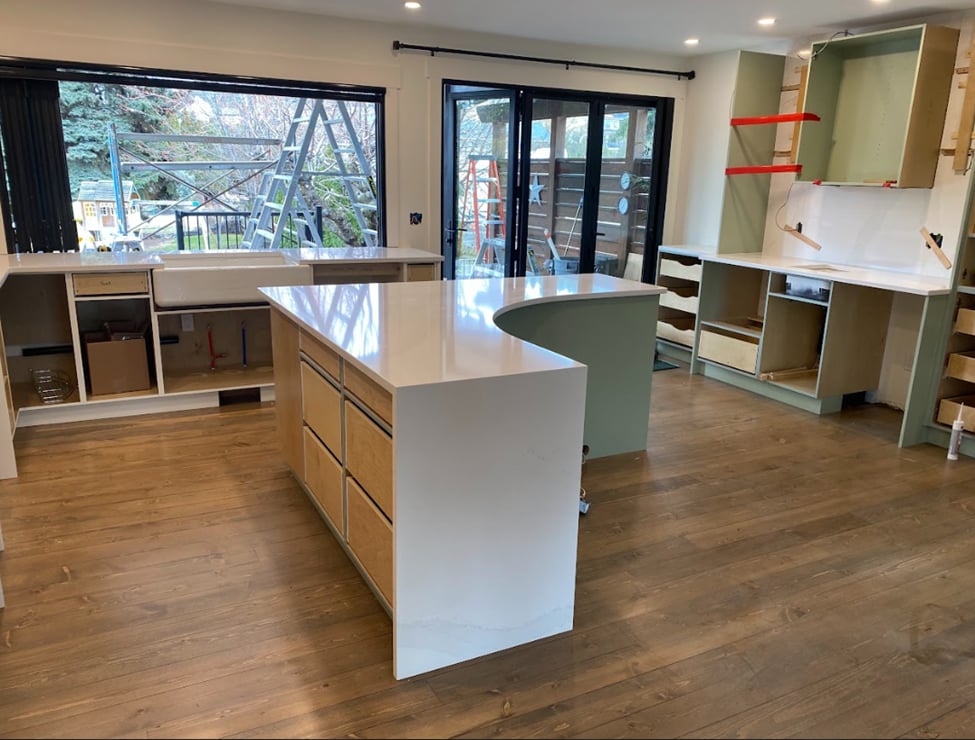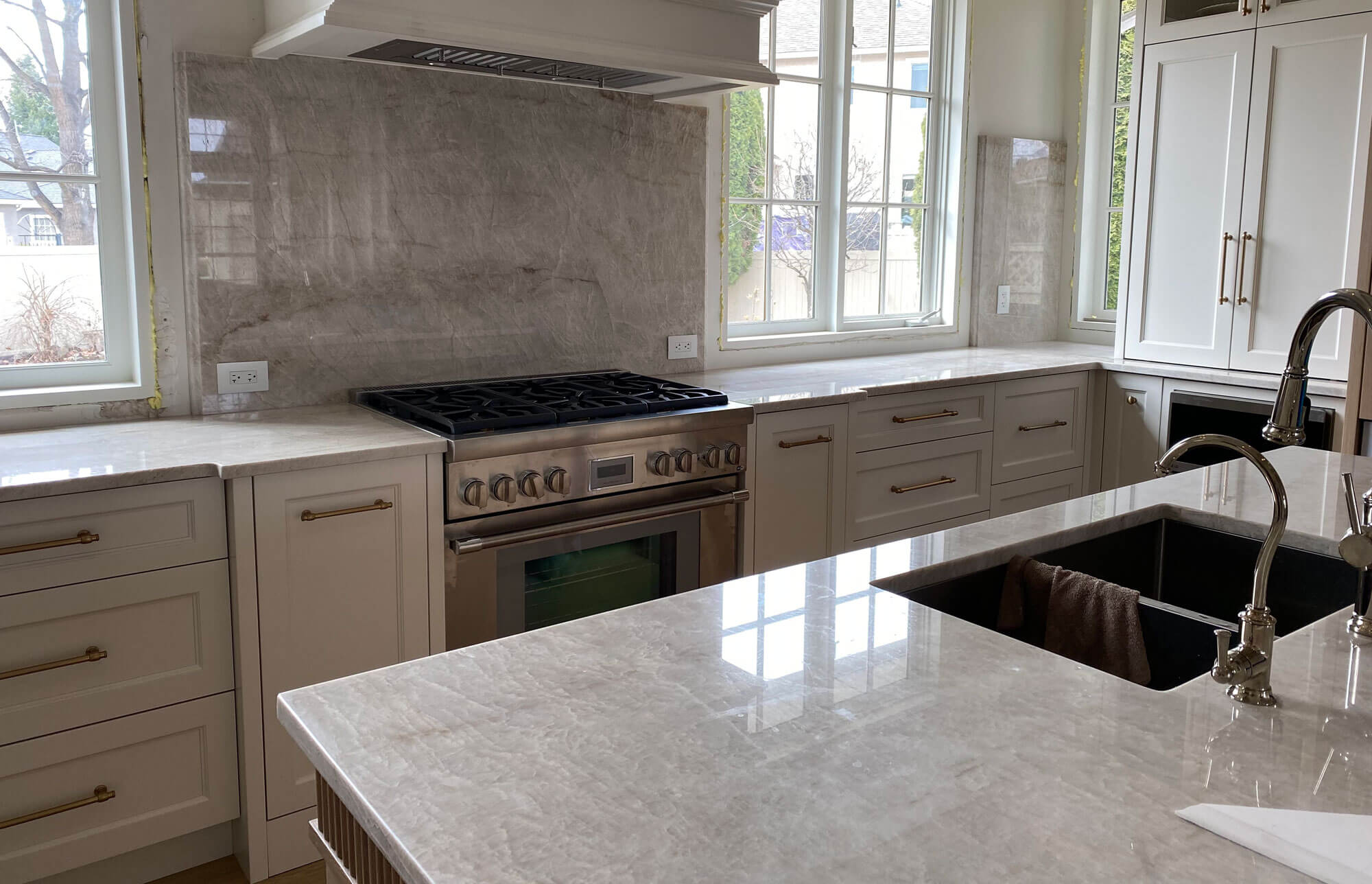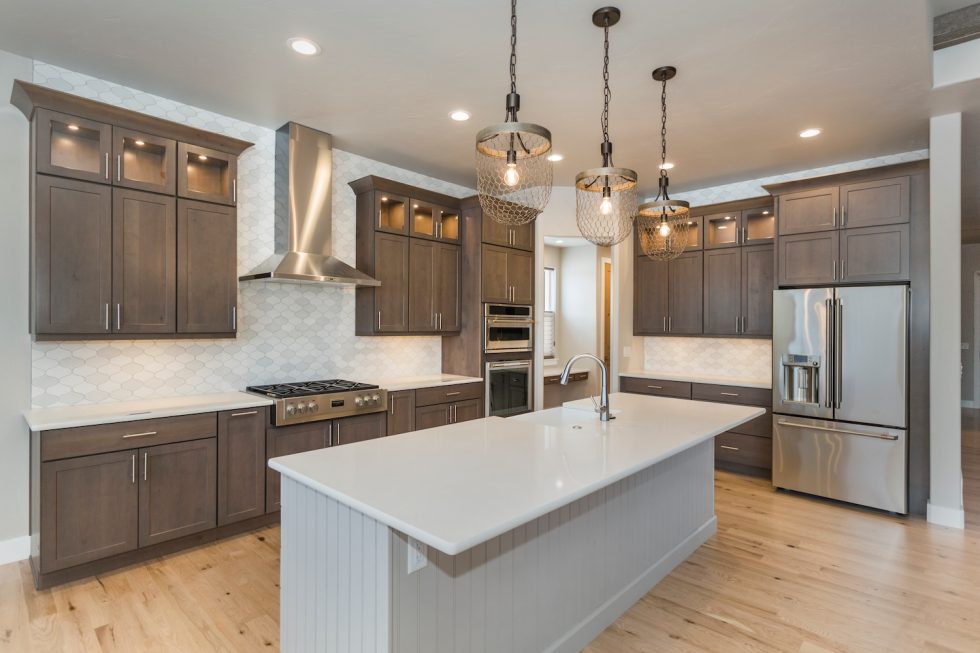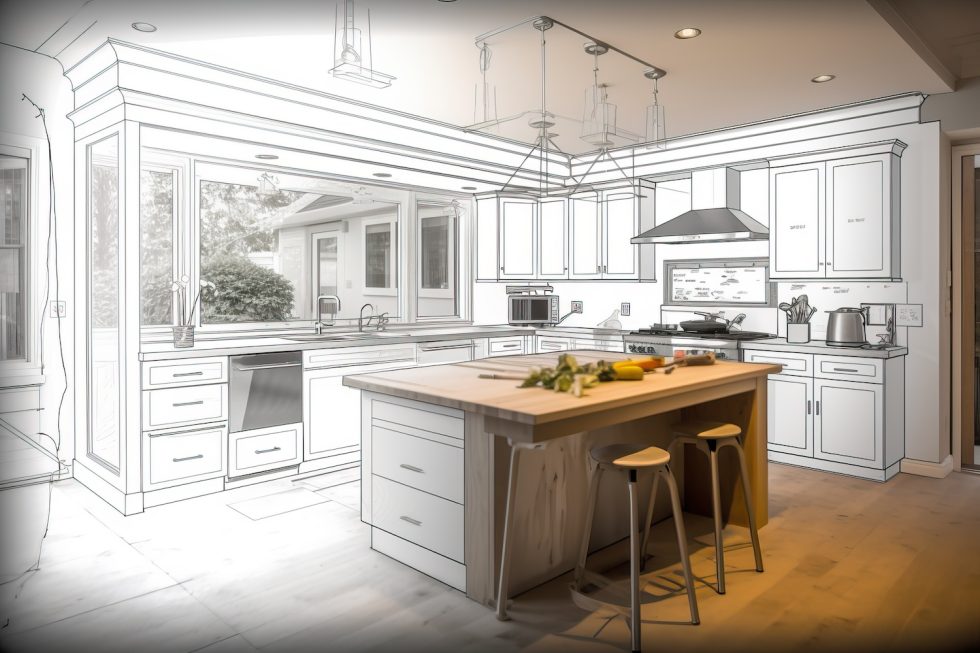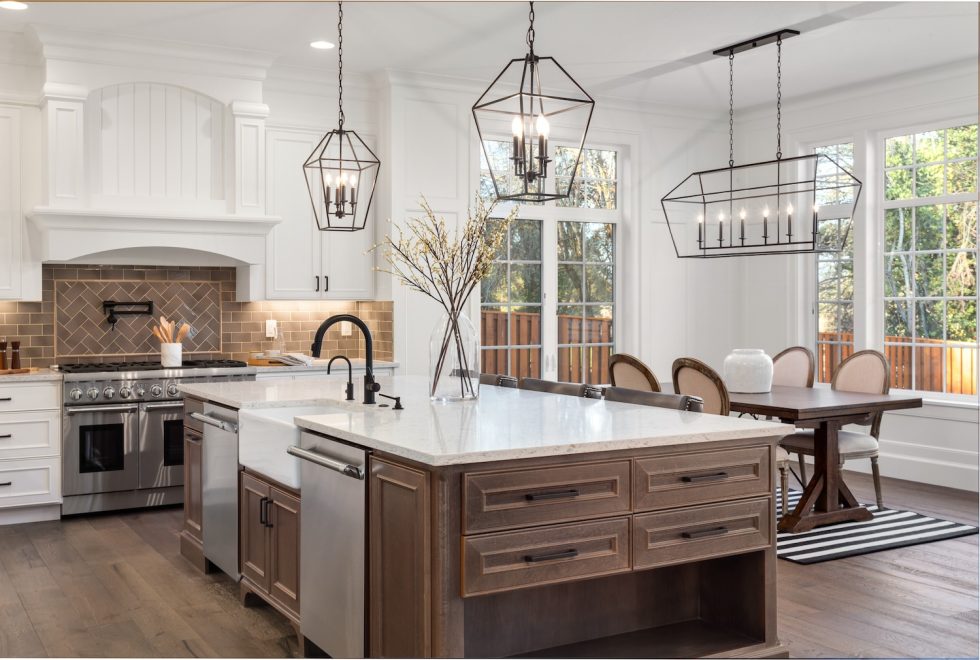When choosing countertop materials for a kitchen or bathroom, many homeowners prefer the look and durability of stone over laminate, tile, or wood. Stone countertops are available in a wide array of unique colours and patterns, and quartz and granite are two of the most popular materials.
Both quartz and granite offer beautiful texture and long-lasting durability for kitchen and bathroom surfaces. If you’re unsure which of these materials is best for you, use this simple quartz vs. granite guide, and find out which one better suits your space and lifestyle.
Composition
Quartz is an engineered stone and its countertops are manufactured goods. Most of the material is composed of minerals but up to 15 percent can be resins and colour pigments. The resin that ties it all together is the remaining component.
Granite counters are produced from purely natural stone that comes directly from stone quarries and is then cut into thin slabs, polished, and fabricated into countertops.
Appearance
Quartz has a consistent, uniform appearance that appeals to many people. The uniformity makes it easy to hide seams but also gives the countertop a manufactured look. While quartz is most commonly seen in natural tones, it can be dyed any colour, so you can choose a custom-looking countertop. However, dyed quartz can fade with exposure to UV light over time.
Granite has a natural look that’s hard to replicate in manufactured countertops. There’s a wide range of natural colours available, and every slab is unique because it’s a natural product. While the uniqueness is a big selling point, it also means that each section of the countertop has a less uniform appearance, and seams are more obvious than with quartz.
Maintenance and Durability
If you’re like most families, ease of maintenance is an important aspect to consider because there will always be a spill or mess that needs to be cleaned up. The good news is that neither of these options stain easily and both are very durable. Here’s how the two compare:
Quartz scratches easily, but minor scratches are easily repairable with epoxy kits. Additionally, quartz countertops are naturally shiny and don’t require polishing. Plus, because it’s manufactured and nonporous, you won’t need to use special chemicals or cleaning agents; just mild soap or detergent works fine.
However, it’s important to note that heat damage is a genuine threat to quartz because of its resin component. Hot pans can seriously discolor a quartz countertop, and the damage would be permanent.
Granite is extremely durable and hard-wearing, so maintenance and repair should be minimal. A professional can repair minor scratches and polish out the damage. You should avoid abrasive cleaning products and harsh chemicals when cleaning granite and clean up spills right away to prevent stains and damage. Also, you would want to seal your granite countertops regularly to avoid bacteria and moisture buildup.
Be aware that granite countertop edges and corners are vulnerable to cracks and breakage if something heavy is dropped in just the wrong spot.
Lifespan
Practically all quartz countertop manufacturers offer limited warranties for their product’s lifespan anywhere from 10 years to life. This is a testament to their confidence that the product will outlive the home it’s installed in.
On the other hand, the generally accepted estimate for the lifespan of granite countertops is 100 years – although it will depend on the level of care and maintenance. Granite lasts for millions or billions of years in its natural form. However, once it’s cut up and subjected to the rigors of daily household use, it may run out of practical usability someday. Nevertheless, it’s more than likely to last much longer than your home, especially if it’s well-maintained.
Installation
Both of these countertop materials require professional installation for all but the smallest and simplest projects. Because both quartz and granite are constructed mainly of natural stone, they’re exceptionally heavy, challenging to work with, and unsuitable for DIY installation. They also require difficult and precise cuts that cannot be achieved without special equipment. Additionally, comprehensive training is also required to create invisible lines if multiple sections must be seamed together on-site.
Quartz is comparatively easier to install, as it’s manufactured to fit your space exactly. Plus, it doesn’t need sealing, which reduces installation time. You would need to reinforce the cabinets, though, as quartz is heavy and requires specialty moving and transportation equipment.
As with quartz, granite is extremely heavy and requires reinforced cabinets and specialty transport and moving equipment. Yet, despite its durability, granite is fragile and prone to cracking during transport, so extra care must be taken. Because of their weight, granite slabs are pre-cut by granite fabricators for easier installation, but a measuring mishap, however small, can mean you have to return the granite to the supplier for a recut.
Final Thoughts
So, which one should you go with?
Granite and quartz both have many attractive qualities as countertops options. They’re durable, long-lasting, and add value to your home. In the end, the best countertop material depends on your budget, the room you’re remodeling, and the finish you want. If you have trouble choosing between granite and quartz countertops, then let us help! No matter your budget and your preferences, Landmark Countertops has the perfect solution for you.

